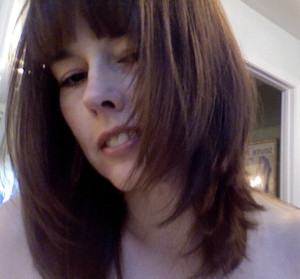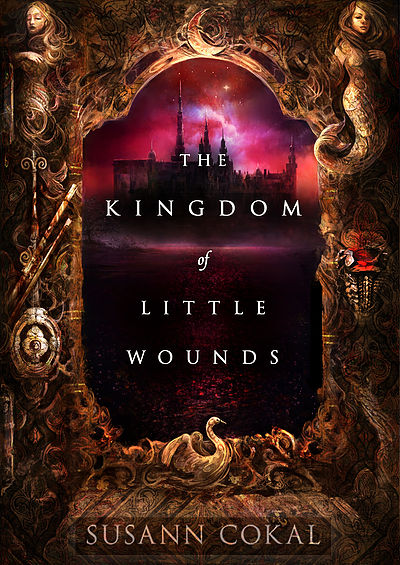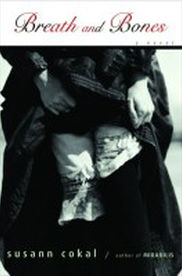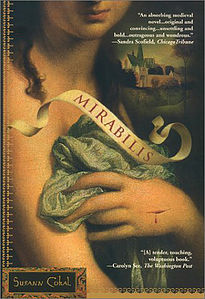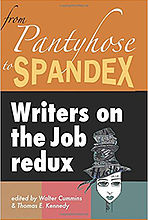Aside from her role as the Editorial Director of Broad Street Magazine, Susann Cokal also wears hats as historical novelist, pop-culture essayist, book critic, and professor of creative writing and modern literature at Virginia Commonwealth University. In addition to her three published novels, Cokal has published fiction and nonfiction in Electric Literature, Gargoyle, The Cincinnati Review, The Journal, Hayden’s Ferry Review, Prairie Schooner, The New York Times Book Review, and (yes) Broad Street, among many others. Her interests in pop culture and literature have led to articles about zoos, tuberculosis in nineteenth-century Danish novels, supermodels, feminized space in The Sopranos, and a host of other beat and off-beat topics. Cokal is a recipient of Richmond Magazine‘s Theresa Pollak Award in the “Words” category, a “Women in the Arts” award from Style Magazine, and a silver medal Printz Award from the ALA — one of the highest honors for young adult literature.
*********************************************************************************************
What role does truth play in your writing– your nonfiction, certainly, but also any other genre in which you work?
I think there are different kinds of truth–there’s the emotional truth, the kind you find in any good writing, whether nonfiction or fiction. And then there are empirical facts, the truths on which we agree, the ones scientists and historians have recorded and explained for us. Both types of truth are the heart of good writing.
In nonfiction, I’ve written about zoos, supermodels, abortion, Barbie’s best friend, Midge, and best friends in general (for Broad Street!), and about the role coincidence plays in life and fiction–there are some coincidences in my life that I could not put into a story without being called a sham. I researched every one of those pieces and tried to tie my personal truth to a “bigger truth” recognized in the world beyond my own heart.
I do the same thing as a writer of historical fiction. I research each era, each piece of clothing and bite of food meticulously–then let emotional truth take over in a story that usually reads like magic realism (with an emphasis on the realism). Nitpicking readers will notice the historical accuracy; emotion should transcend everything.
How does honesty in storytelling affect the voice in which you write a particular piece?
This is where the idea of emotional truth really comes in. Sometimes someone (student, friend) brings me a piece of writing for diagnosis. The person usually knows why the material has slipped through the fingers–maybe because excitement over it led off in fireworksy directions, or maybe s/he was just writing in order to write, trying to suit some sense of externally imposed structure. We do need some kind of structure to sharpen the arrow that drives Truth toward the heart, but writing to formula often feels too much like a series of tricks that tire the writer out and make her wonder why she’s doing what she’s doing. We often have really great chats about why it’s happened, though …
If I don’t feel and believe my heart is in a piece of writing, whether it’s an essay or an article or a novel, it’s going to fall flat. I talk to my material and live with it until it becomes part of me–and that’s when the truth blossoms.
How do you determine some subject has to be written about?
Pain, usually. If it hurts me, if it’s hurt someone else—pain demands recognition. But so does joy—rare and astonishing as it might be. And sometimes things just puzzle me so I want to know more about why people are doing some crazy thing.
I once wrote a scholarly article on changing fashions in “most personal hairstyles” because I wondered about the shift; I discovered links to a move in the porn industry from movie screens to home video and–surprisingly–to nineteenth-century Reformist ideas of cleanliness. The porn actors were using almost exactly the same rhetoric as the religious crusaders. Proving you just can’t make up the weirdest parts of truth.
What do you find most challenging about writing the truth?
Again, pain. I get horribly depressed when I have to write about something awful (and I’m not just talking about reading novels written by Tyra Banks and Naomi Campbell, which I once had to do for profiles on them). It’s hard to go to the dark corners of the soul and root out those tangled dust bunnies for other people to inspect and possibly sneer at. If I make something bad happen to a fictional character, I might actually cry. Even humorous subjects bring a sort of agony–whom might I hurt by making a joke? Perhaps (most often) myself. (Perhaps Tyra Banks or Naomi Campbell.) In the end, the challenge is being true to the material and to my own tender heart.
But you pretty much have to go There if you’re going to write something important. Let yourself feel every possible emotion. Write from mood if mood is what inspires you–plot and character don’t necessarily have to be the beginning.
When you were a struggling/dreaming new writer, what gave you inspiration and kept you going?
That’s one of the hardest–and the very best–times in life, when you feel such longing, such ambition, and you aren’t sure you’re going to be the kind of artist you want to be. But you’re so full of potential; you can feel it thrumming through your veins. I look back on my teens and twenties, when I wrote and wrote and wrote, with a kind of nostalgia—yes, I’ve published more since those years, but there was something wonderful about all I hoped I could do.
In those early days, I mostly worked at pantyhose-and-cubicle jobs. I wrote about that era and the sexism inherent in putting on pantyhose and going to a cubicle in an essay called “My Life in Pantyhose,” for Writers on the Job, which later made its way into an anthology.
My students ask me about how to keep going, how to keep writing, every week.
For myself, I think there’s the easy answer “I can’t not write; I have to do it and always have”–I started writing as soon as I could read, at age four. Mostly I knew what I wrote was not “good enough,” and in fact if we had to share an assignment in class I hid the secret artist part of myself for protection and wrote some silly thing about being a member of an ant colony my sister was stomping on. There’s always been a deep, dreamy, chthonic part of me that wanted to express some truths–factual and emotional. Reading a good book will make me tingle all over–or sometimes cry. Getting an exciting idea or phrase is a gift from the gods.
A long way of saying I don’t know for sure … Just that writers have to keep believing through the darkness, giving their projects a loving pat on the head from time to time even when they don’t feel good about themselves. And finding kinship among other truth tellers, even if that kinship exists only on the page for a while. Seek the best in others and you’ll find the best in yourself.
So here’s what I’d say to new writers above all: Believe. Listen to your inner editor, but don’t let her beat you up entirely. No one else knows what you know; you have to write your truth or it won’t be out there for the rest of us to experience.
***********************************************************************************
More advice for new writers can be found on Cokal’s website, here.
![]() True stories, honestly.
True stories, honestly.

